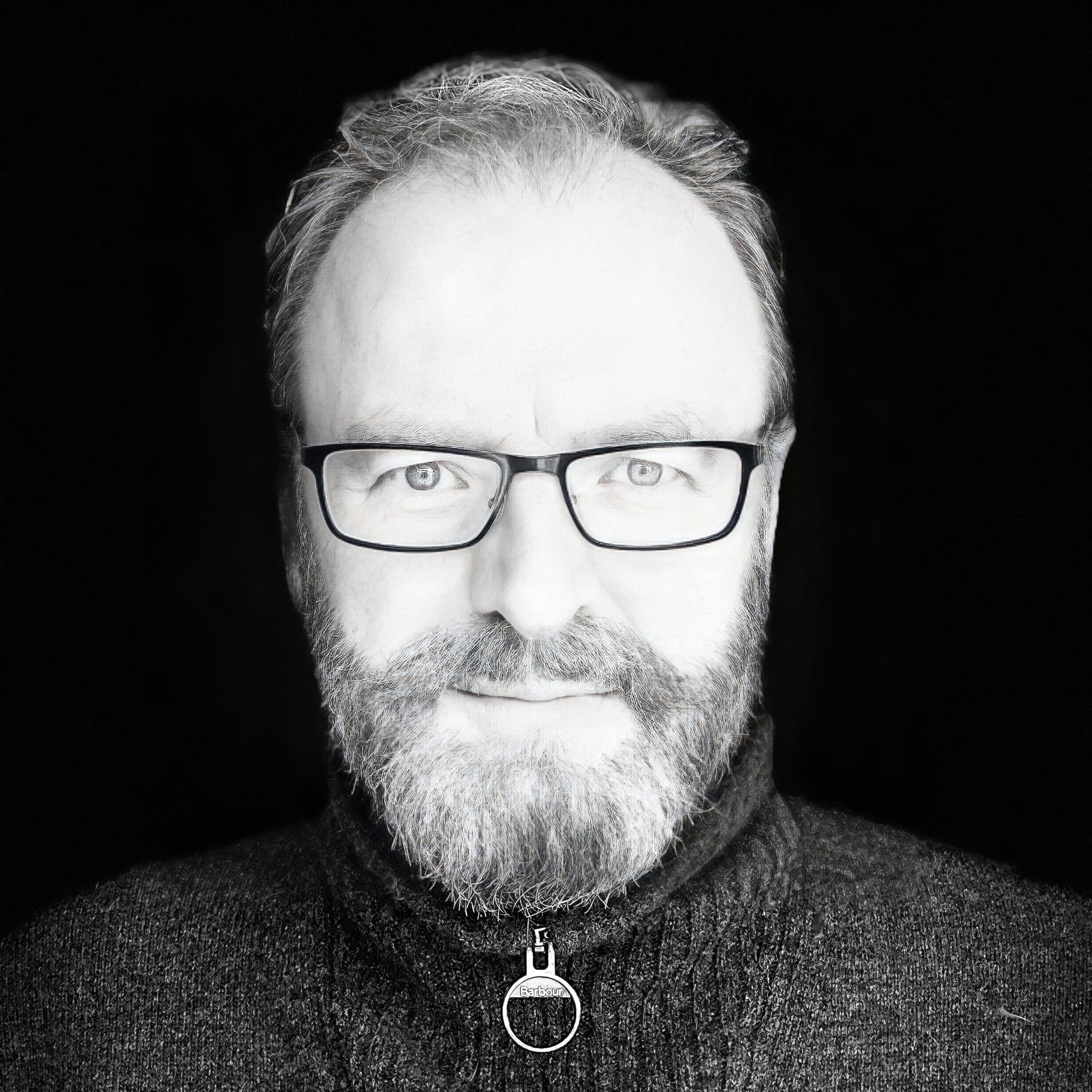Radical Housing Conference Scotland
Part 1
programme
Morning – From Forest & Field to Front Door
From Forest & Field to Front Door (F4D) explores opportunities in agroforestry and regenerative housing through an innovative financial mechanism called Carbon and Social Value Trading (CSVT), which integrates natural carbon capture and storage with social impact. F4D incorporates a Forestry Commission R&D initiative using low-carbon, 3-ply cross-laminated timber (CLT) that accommodates diverse wood species in hybrid mixes to underpin a localised method for the prefabrication of low-carbon affordable homes. Collaborators include Agile, Highland Heritage Woodworks, Grown in Britain, and Carbon Plantations. Agile’s CSVT tool generates funding by trading Social Value and Carbon credits, creating a new revenue stream to scale affordable housing delivery.
F4D addresses rural regeneration, the housing crisis, and climate challenges by building resilient, low-carbon communities. Key obstacles in Scotland include land availability, Agile will share their model for unlocking land. Grant funding from the Forestry Commission and awards like the Esmée Fairbairn and Royal Agricultural University prize have enabled this work, and underwrites the delivery of the Radical Housing Conference Scotland Craig White and Guy Phillips will present their research outcomes and next steps.
9:30 Morning Session 1 – Supply chain trends & trajectory in Scotland
Chair – Rachel Lawrence, business manager, Grown in Britain
10:30 Morning Session 2 – Woodlands into Management innovation R&D case study.
Chair – Rachel Lawrence, business manager, Grown in Britain
Guy Phillips, CEO & co-founder,Highland Heritage Woodworks
Craig White, CEO & founder, Agile Homes
Thin CLT 3 ply manufacture in Scotland. Establishing how micro mills can find a higher margin economic model for the manufacture of high-value engineered timber products for the use in housing. A systems thinking approach to innovation in timber engineering.
11:15 Morning Session 3 – Wood Knowledge Wales: Emerging the high value forest nation
Building off of the WKW conference in Bioeconomy Innovation Day 2024. https://woodknowledge.wales/bioeconomy-innovation-day-2024/. Renewable, circular solutions are essential for achieving a green transition by building bio-based solutions for a decarbonised built environment.
12:00 Distilling thoughts: panel & delegate conversation into action.
12.30 pm Lunch break
Online all day on Friday, 24th January 2025.
Free
Join us for this online event exploring innovative, affordable and low-carbon solutions to Scotland's rural and urban housing crises. This all-day event will include a series of engaging discussions and presentations led by people who are helping to fix the housing crisis. Whether you're a housing advocate, policymaker, a community-led housing activist, or simply interested in learning more about housing in Scotland, this is the conference for you.
"Radical Housing Conference Scotland brings together the thinkers and the doers in housing, providing an opportunity to grow the links needed to deliver more of the sustainable, affordable, home-grown housing that addresses Scotland's housing needs." - Highlands & Islands MSP Ariane Burgess
We can't just wait for the Scottish Government to resolve this; we have to take action ourselves -- both in terms of design, implementation and finding alternative sources of funding. Let's work together to create a more equitable, affordable and sustainable housing future in Scotland! We have one simple rule, don't come to describe the problem, only come with solutions.
Afternoon Session 1 – Urban
This session is about new collective models for building and retrofitting homes that are both affordable and sustainable. This session will challenge cultural norms, addressing the issues around urban housing from new social perspectives. We will cover how to develop new co-living models and how existing buildings can be adapted for collective housing. We will focus on cooperative governance and models for living together which go beyond the nuclear-family-centric model. What cultural and social shifts will be needed for these alternative forms of housing to take place? We also will be hearing from marginalised communities.
13:15 Panel discussion and Q&A
Chair – Scott McAulay, founder, Anthropocene Architecture School / RDIS, Architype Ltd.
Panel:
Joanne McClelland, founder EALA Impacts
Emilia Kibble, Edinburgh Student Housing Coperative
Gemma Moncrief and Roseanne Steffen, co-founding and new member of Redcurrant Housing Cooperative
Kirsty Maguire, director, Kirsty Maguire Architect Ltd.
Afternoon Session 2 – Rural
In this session, we will consider how the Scottish construction industry might be cajoled into building more sustainable and affordable homes to meet anticipated demand in the Highlands & Islands arising from developments such as Inverness and Cromarty Firth Green Freeport. We will look at opportunities emerging from innovative housing projects and funding models, including those of SSEN Transmission and Mowi, which could become a model suitable for roll out across rural Scotland. We will also examine whether the private sector might be persuaded to fund a network of sustainable construction hubs where training, tools and workspace is available, across rural Scotland, where local builders can learn how to build affordable homes for the rural workforce using local timber. Will fish farms, distilleries, renewable energy companies, energy infrastructure firms, and other rural enterprises, all of which are currently struggling to find and retain staff owing to the lack of affordable homes, invest or give loans to develop a network of such hubs?
15:00 Panel discussion and Q&A
Chair – Morven Fancey, Head of Housing, Skills and Population, Highlands and Islands Enterprise
Panel:
Gavin Miles, Director of Planning and Place, Cairngorms National Park Authority
Richard Jennings, Housing Strategy Manager SSEN Transmission
Diarmaid Lawlor, Associate Director Scottish Futures Trust
16:40 Close
The conference is organised by SEDA Land, part of the Scottish Ecological Design Association, and Agile Homes. Part 2 of Radical Housing Conference Scotland will be an all-day, in person event on 2 May at Birnam Arts in Dunkeld and Part 3 is an evening in-person event held in Edinburgh in June, which will form part of the Architecture Fringe (exact date to be confirmed).
Speakers
Stay tuned for updates on the schedule and speakers.
The following speakers as listed below have been confirmed.
Richard Jennings, Housing Strategy Manager SSEN Transmission
Richard is a creative provocateur driving innovation and leadership at the interface of the public, private and voluntary sectors. He is experienced in the delivery of transformation change programmes and leading complex and successful organisations. Learning from failures and successes and building trust within teams and across stakeholders. Richard has developed and delivered technology enabled change to improve customer services and the P&L account. He has over 10 years of board experience, including chair of main boards and audit committees.
He is values led and committed to tackling inequity in society.
Joanne McLelland, President, EALA Impacts & Treasurer and, Edinburgh Building Retrofit & Improvement Collective
Jo is the founder of Eala CIC and an Accredited Conservation Architect with the RIBA. Jo’s twin passions of conservation and sustainability are shown in her work as well as memberships of the RIAS boards for both areas, as well as memberships of SEDA, SPAB and IHBC. Jo is the immediate past EAA President, a trustee of the RIAS, director of Circular Economy initiative Plan A, and Treasurer of the Edinburgh Building Retrofit & Improvement Collective. The Collective is a community support organisation to improve the relationship of people and their buildings in Edinburgh. She was responsible for the Edinburgh RIAS COP26 activities, including the steering group of SpACE – Space for Architecture Carbon and Environment. Jo is a tutor at the Edinburgh School of Architecture & Landscape Architecture (ESALA).
Gavin Miles, Director of Planning, Cairngorms National Park Authority
More information to follow…
Craig White, Founder and CEO, Agile Homes
Craig is CEO at Agile Property and Homes. Agile delivers low-carbon, affordable homes to those in housing need. Prior to setting up Agile, Craig founded the Chartered RIBA Architectural Practice, White Design and ModCell Straw Technology, prefabricated, renewable building systems. This combination of design and fabrication lead to one of the first construction products to make large-scale, carbon-negative building a commercial reality.
Scott McAulay, founder, Anthropocene Architecture School / Regenerative Design and Infrastructures Specialist, Architype Ltd.
Scott founded the Anthropocene Architecture School in 2019 and through it has brought together thousands of built environment professionals and beyond to learn about responding to the climate emergency and cultivate their agency. Working with Architype, Scott is the studio's first Regenerative Design and Infrastructures Specialist - cultivating conditions for regenerative outcomes internally and externally whilst applying specialisms on ecological materials, life cycle analysis and sustainability coordination to projects across the U.K. Scott is an active member of Living Rent, a Co-Producer of the Architecture Fringe, contributed to the co-creation of the Retrofit Reimagined 2023 festival season and has taught about climate literacy and the intersection of architecture and the climate crisis at universities across the U.K. and internationally.
Morven Fancey, Head of Housing, Skills & Population at Highlands & Islands Enterprise
Morven investigates the link between housing and economic growth in the Highlands and Islands and why national policies to support both need to be aligned and adjusted to fit with the specific conditions of remote rural and island communities. She works in the Highlands and Islands Population Working Group addressing depopulation. Morven has 30 years’ experience of working in rural economic development in the region. More recently she has focussed on addressing depopulation in rural locations in island and west coast communities where the lack of housing is now recognised as the major barrier to sustaining and growing the population AND the economy.
Gemma Moncrief & Roseanne Steffen, co-founder & new member, Redcurrant Housing Cooperative
Redcurrant Housing Co-operative is a fully mutual housing co-operative – a jointly-owned and collectively controlled enterprise. Having started off looking for a property in Edinburgh, after 3 years Redcurrant moved its search to Glasgow. As of early 2021 they have secured a home in the southside of Glasgow and seek to provide affordable and secure housing for its members; a home where they can feel safe and flourish as individuals and collectively.
Emilia Kibble, Edinburgh Student Housing Co-op
Emilia is currently in her third year at The University of Edinburgh and a member of the Edinburgh Student Housing Co-operative, where she currently holds the role of Property Developer.
Guy Philips, CEO & founder, Highland Heritage Woodworks
After a successful 25 year career as a geologist at BP, Guy setup Highland Heritage Woodworks with Armands Balams. Knowing that a successful company needs the best people, Guy has gathered together a team with exceptional talents. Having helped his father build the family home when he was young, Guy has remained connected to building beautiful things from wood. He is a firm believer in ‘Forest to Front Door’, making the best use of the raw materials on our doorstep to craft products and structures of exceptional quality with genuine sustainability. Guy says ‘It’s important to be passionate about everything you do. Getting the right balance between family, adventure and work is a constant challenge, but when you hit that sweet spot, well…you know all about it.
Diarmaid Lawlor, Associate Director Scottish Futures Trust
Diarmaid is a designer, educator, and communicator who champions creative approaches to making better places. He has over 20 years’ experience working with communities and across sectors to make well-informed decisions about place-based policy and investment challenges. In SFT, Diarmaid leads on support to the Scottish Government Place Based Investment Programme, and works with public bodies across Scotland to shape place-based strategies for services, assets and investments.
Christiane Lellig, regenerative development, Wood Knowledge Wales
Christiane Lellig focuses on societal transformation and regenerative approaches from a living systems perspective. Christiane has been working on social change programmes in Switzerland, Germany and the UK since 1999 ranging from environmental concerns to labour and social justice issues. From 2016-2020 she was responsible for the UK timber industry’s Wood for Good campaign. Her particular interests lie in questions around resilience, society in transition, land-use, forestry, biodiversity, housing and transport. Christiane holds a postgraduate degree in Social Sciences from the University of Göttingen, Germany. She is a member of the regenerative practitioners network affiliated with Regenesis Institute for Regenerative Practice.
Kirsty Maguire, director, Kirsty Maguire Architect Ltd.
Director at Kirsty Maguire Architects Ltd - architect, specialist consultant and capacity development; Tutor at Coaction Passivhaus Training. Passivhaus designer and Passivhaus certifier trained
Working with the local climate, surrounding buildings or landscape and the inhabitants to create warm, comfortable, low energy spaces is key to my approach.
Rachel Lawrence, business manager, Grown in Britain
Rachel grew up surrounded by school teachers carrying out renovation projects, so it was inevitable she ended up working in the built environment arena. With a background in marketing literacy and numeracy software into education for Research Machines, Rachel went on to project manage two residential builds using traditional materials at a time when traditional materials were quite radical. Her role at GiB blends forestry and chain of custody certification with innovative R&D, all with the aim of promoting the use of certified homegrown timber and increasing capacity and capability in UK supply chains.















